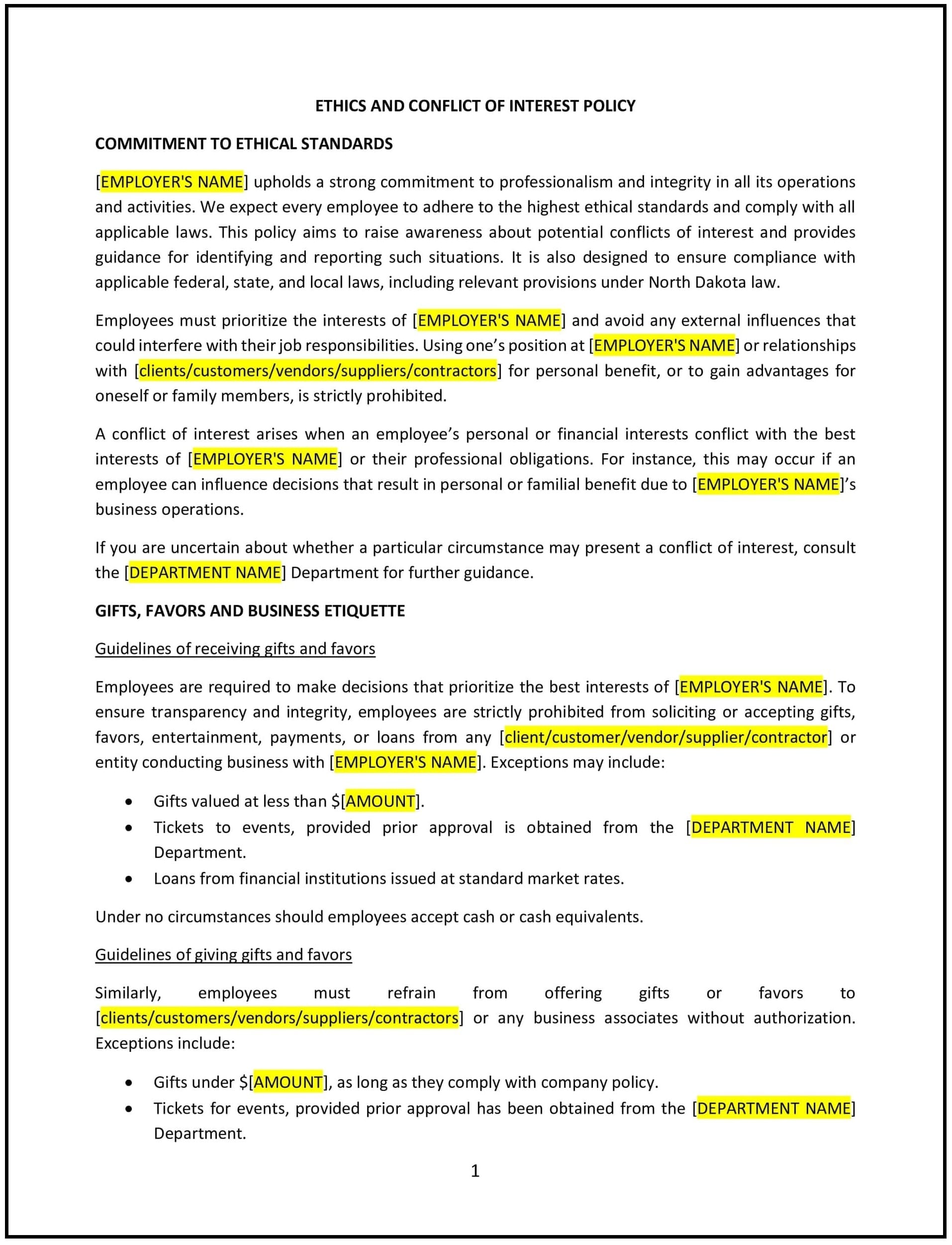Ethics and conflict of interest policy (North Dakota): Free template
Got contracts to review? While you're here for policies, let Cobrief make contract review effortless—start your free review now.

Customize this template for free
Ethics and conflict of interest policy (North Dakota)
This ethics and conflict of interest policy is designed to help North Dakota businesses establish standards for ethical conduct and prevent conflicts of interest in the workplace. The policy outlines expectations for professional integrity, disclosure requirements, and enforcement procedures.
By implementing this policy, businesses can promote ethical decision-making, protect company interests, and maintain public trust.
How to use this ethics and conflict of interest policy (North Dakota)
- Define ethical standards: Establish expectations for honesty, transparency, and responsible business conduct.
- Identify conflicts of interest: Specify situations where personal interests may conflict with company responsibilities.
- Require disclosure: Mandate employees to report potential conflicts of interest.
- Address gifts and benefits: Set limits on accepting gifts, favors, or business incentives.
- Implement enforcement measures: Define disciplinary actions for policy violations.
- Provide employee training: Educate staff on ethical responsibilities and reporting procedures.
- Review regularly: Update the policy based on industry best practices and regulatory changes.
Benefits of using this ethics and conflict of interest policy (North Dakota)
Implementing this policy provides several advantages for North Dakota businesses:
- Protects company reputation: Ensures ethical decision-making and responsible business conduct.
- Reduces legal and financial risks: Prevents conflicts of interest that could lead to liability.
- Enhances workplace trust: Encourages employees to act with integrity.
- Supports regulatory compliance: Aligns with industry and state ethics guidelines.
- Reflects North Dakota-specific considerations: Addresses ethical risks relevant to local industries.
Tips for using this ethics and conflict of interest policy (North Dakota)
- Require conflict of interest disclosures: Implement a system for employees to report conflicts.
- Set clear ethical guidelines: Establish rules on financial interests, outside employment, and vendor relationships.
- Encourage leadership accountability: Ensure executives and managers model ethical behavior.
- Provide confidential reporting options: Allow employees to report concerns without fear of retaliation.
- Adjust as needed: Update policies based on ethical trends and compliance regulations.